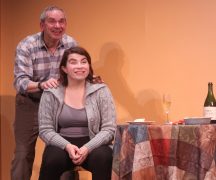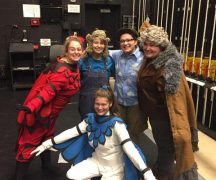By DAVID DUPONT
BG Independent News
“John Proctor Is a Villain” ends with an explosion of dance. A wild terpsichorean expression of girl power performed by two students studying the classic American drama “The Crucible.” While the focus is on the dancers, viewers should attend to the reactions of all the other characters. How they respond to the dance is the resolution of the drama that’s simmered in this high school classroom and in the small Georgia town.
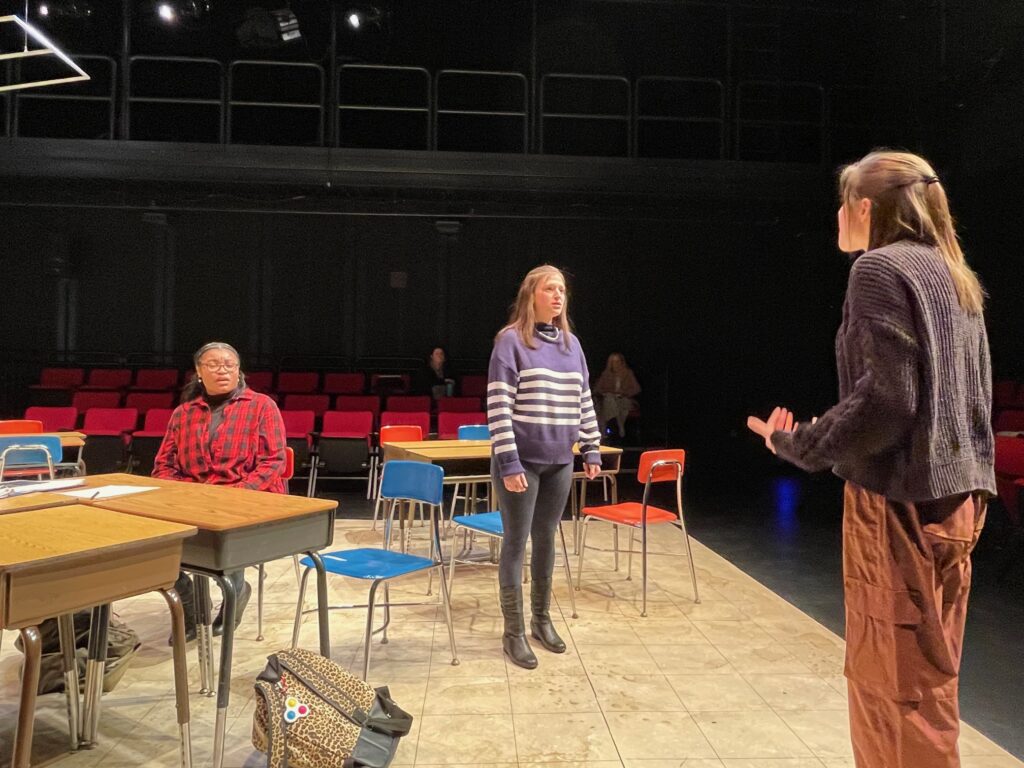
The dance echoes the nighttime dance of the girls of Salem that unleashes a reign of terror over fears of witchcraft in “The Crucible.” Kimberly Belflower’s “John Proctor Is the Villain” dissects Arthur Miller’s classic with cutting humor and revelations of a darkness in a place modeled on her own hometown.
The BGSU Department of Theatre and Film’s production of “John Proctor Is the Villain,” directed by Sara Lipinski Chambers, opens tonight Thursday, Feb. 15 at 8 p.m. in the Eva Marie Saint Theatre and continues Friday, Feb. 16 at 8 p.m., Saturday, Feb. 17 at 2 p.m. and 8 p.m.; Sunday, Feb. 18, at 2 p.m.; Thursday, Feb. 22, Friday, Feb. 23, and Saturday, Feb. 24 at 2 and 8 p.m. Click for tickets.
“The Crucible,” written in 1950s viewed the McCarthy hearings, a witch hunt for suspected Communists, through the lens of the Salem Witch Trials, 250 years before. It’s a study of hysteria. It still speaks to audiences.
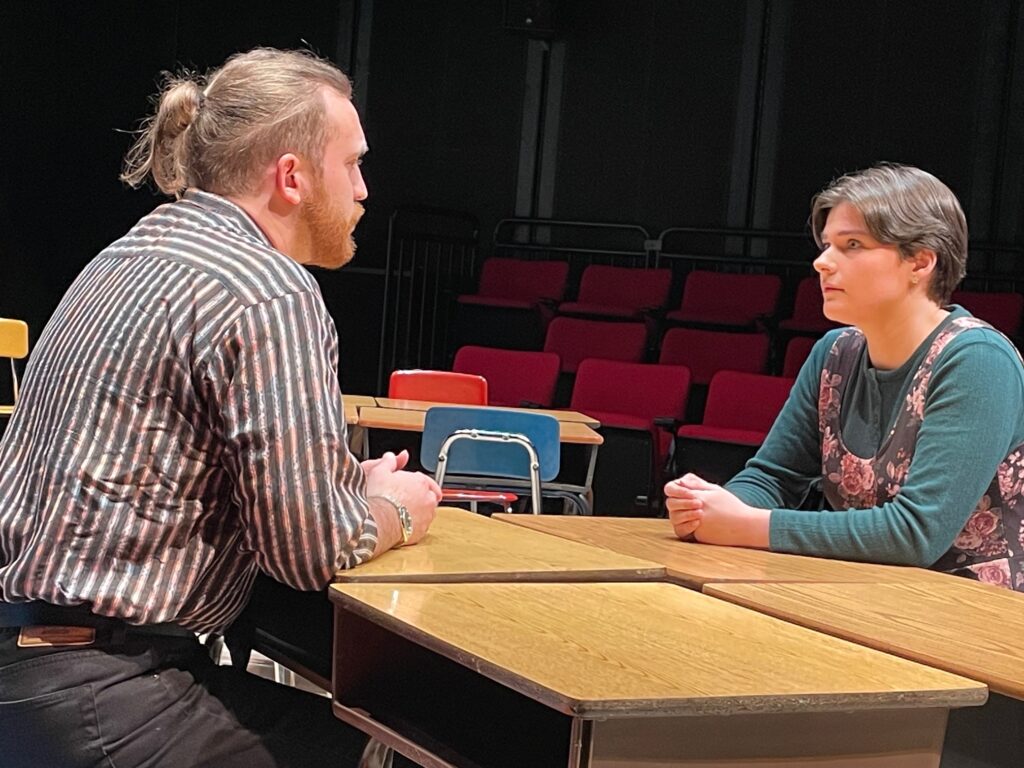
That continued relevance is why English teacher Carter Smith (Donovan Callahan) loves to teach it. And why some students are eager to have him lead them through the play. Smith is the cool teacher. He knows the words to the current hit tunes – the play is set in 2018. He relates to students, with a touch of self-deprecation.
Before the class gets to “The Crucible” they most go over the sex ed definitions, including one of about abstinence. As the plot unfolds, we see how irrelevant the lesson is.
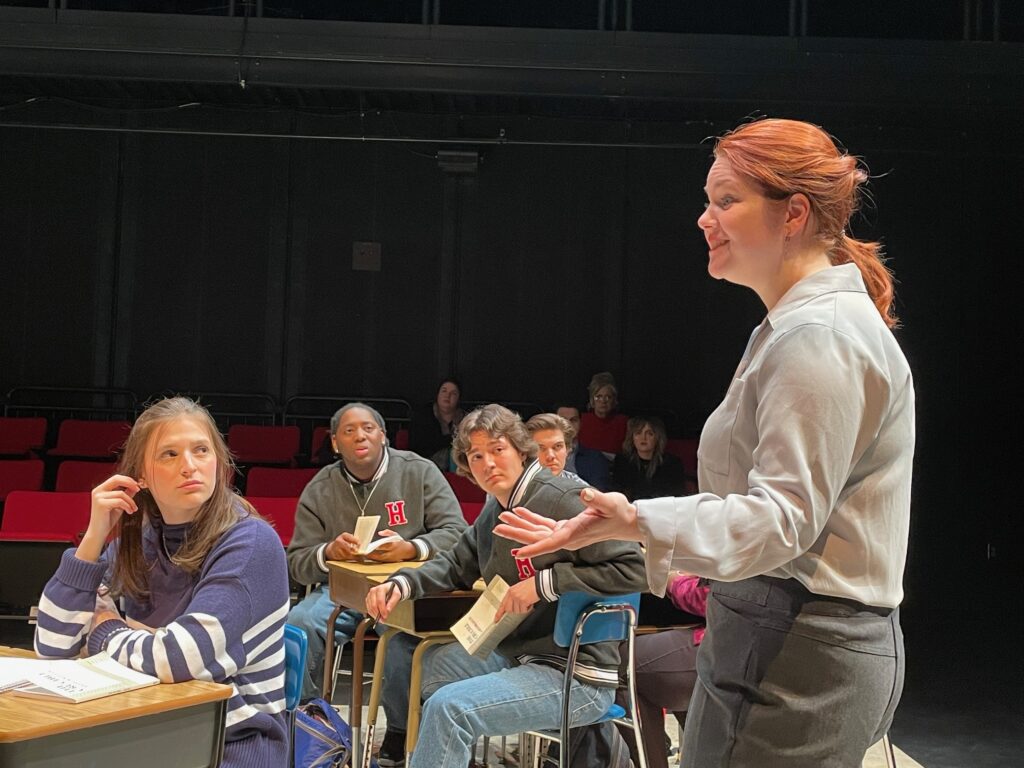
When a group of girls led by Beth (Mel Starcher), the star student who has her eyes on attending a selective college, wants to form a feminist club, the new counselor Bailey Gallagher (Angelina Sorge) nixes the idea, based on unspecified social issues in the community. But Smith comes to the rescue by agreeing to be the advisor, and opening it up to boys. Both are graduates of the school.
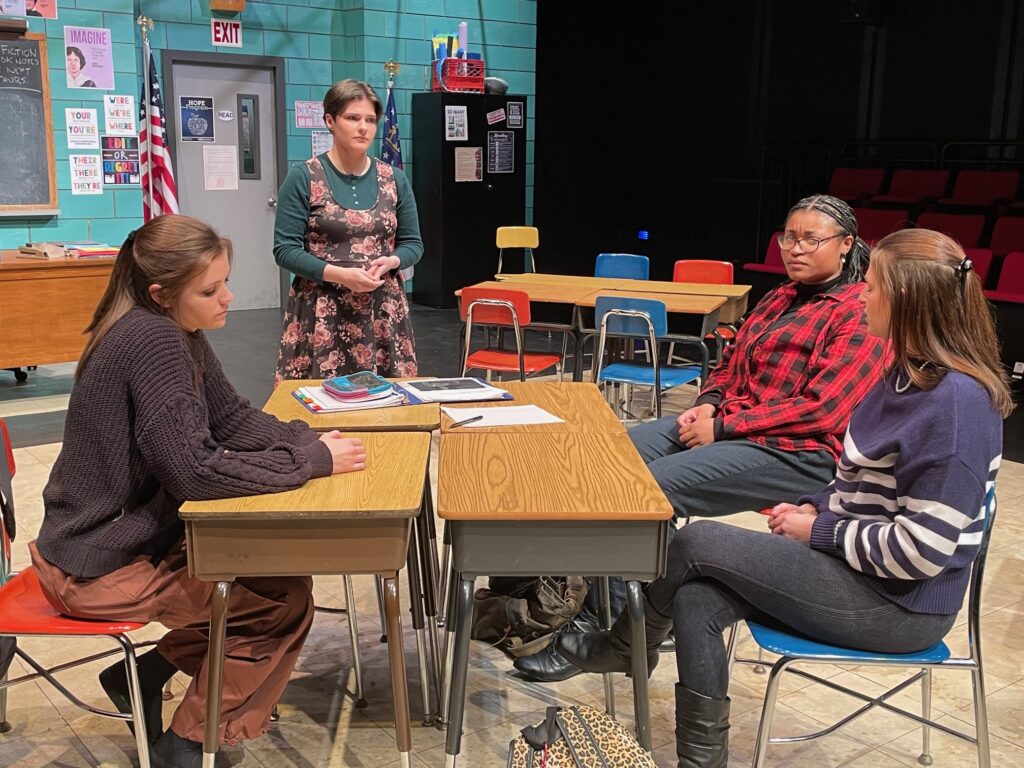
The girls, Nell (Claudette Jones), Raelynn (Maddie Hatton), and Ivy (Ella Sidder), have their own concerns. Nell struggles to be accepted as an outsider who just moved to town from Atlanta with her mother. Raelynn, the daughter of the minister of the most prominent church in town is struggling after breaking up with her boyfriend Lee (Samuel Nickoloff). At 16, they’ve already been going steady for seven years, since they were in fourth grade. Lee pushes her to consummate the relationship, but she’s taken a purity vow. Instead, he cheats on her with Shelby (Sara Madden) Raelynn’s erstwhile best friend. Now he wants to get back together.
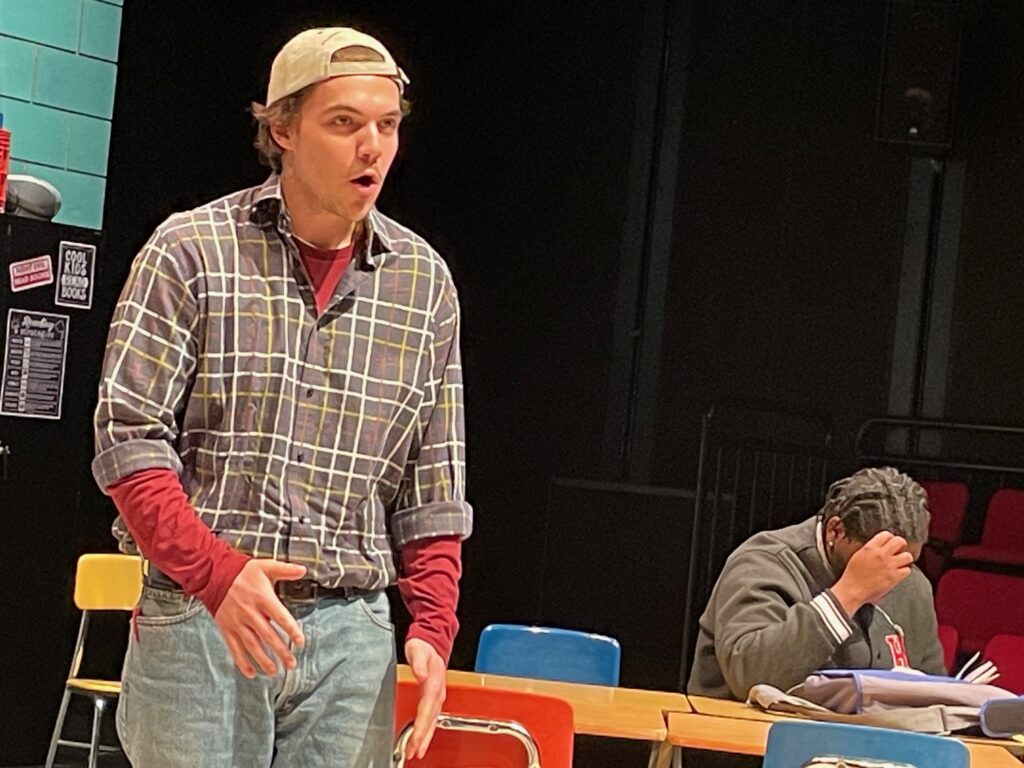
Ivy must confront her father’s admission of a relationship with a subordinate at work and accusations that it was not consensual. Yet, she still sees him as her best friend.
While these girls begin to sympathize with Abigail the character in “The Crucible” who had an affair with the protagonist John Proctor and precipitates the witch hunt, when it comes to their relationships, they are more reluctant to face the truth about the dynamics of sexual power.
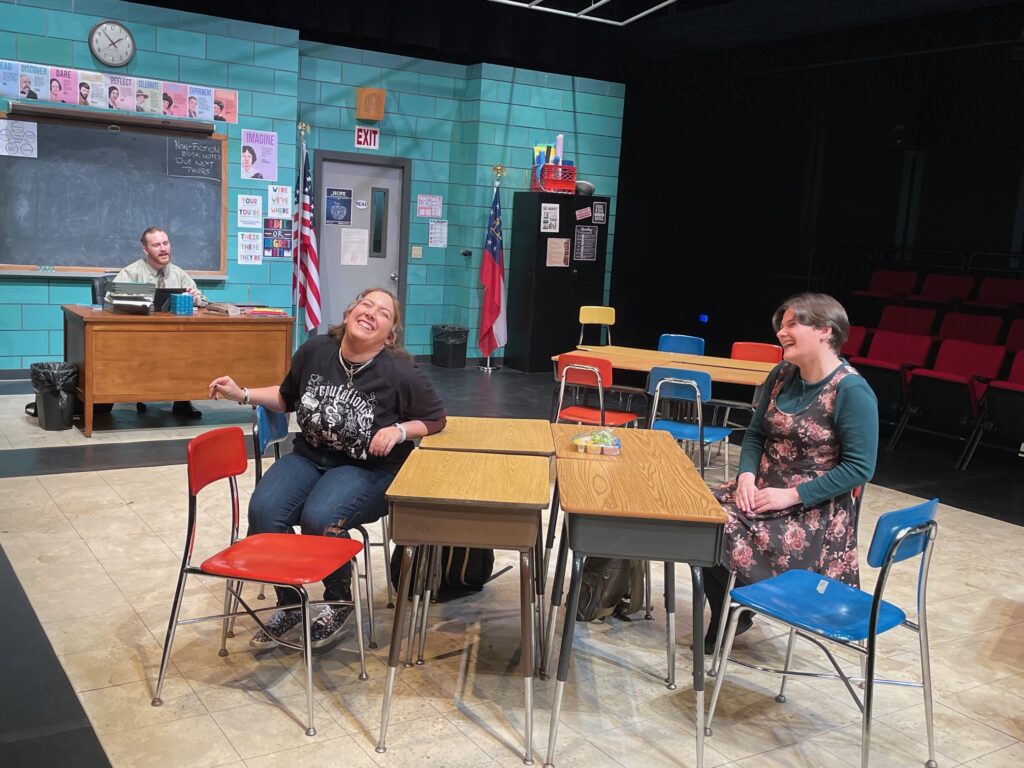
It takes the return of Shelby to completely turn the standard interpretation of “The Crucible” inside out, and show how it has a different kind of relevance to their lives. She’s the one who screams “John Proctor Is the Villain!” She reminds the other girls that during sleepovers Ivy’s, which were quite frequent, her dad was overly familiar, even creepy.
Smith watches as the class spins out of control.
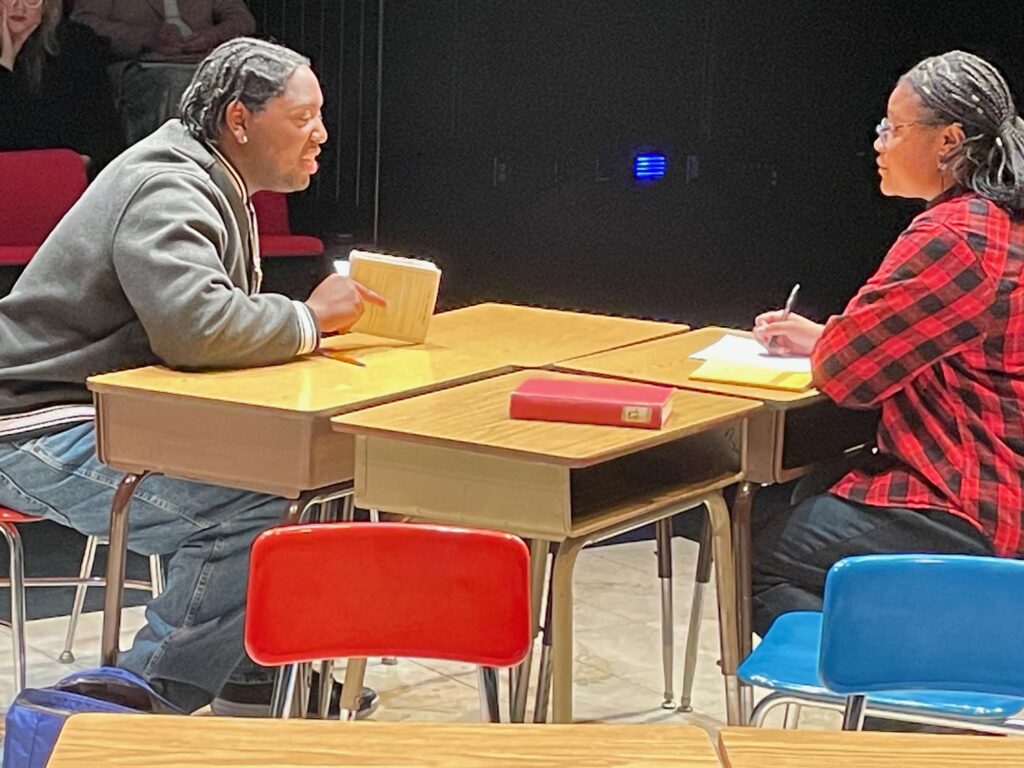
Mason Adams (Dannie Ellis) is the first male to join the feminist club – he needs extra credit so he can stay on the basketball team. At first, he comes across as a stereotypical entitled, slacker athlete, happy to be one of the boys. Ellis though does a great job modulating the character. He shows insight as he absorbs what the girls are saying, though that misfires at a point.
The cast excels in their group dynamics. They sing Taylor Swift tunes together, laugh hysterically, scream, confide the most intimate details.
Each has her own emotional arc. Beth, the leader, finds herself on the outside as the others come to grips with the realities beyond what she’s been studying. She has to confront that Shelby, whom she looks down on, has more insight than she’s given her credit for. That insight, and Shelby’s willingness to express it loudly and profanely, gets her exiled from class, except to make that final presentation.
She and Raelynn do their interpretative dance. Call them witches or crazy, they don’t care. Try to stop them from dancing, they won’t. They welcome others to join them, or cheer them on, or look on with fear. This is a joyous rebellion.



